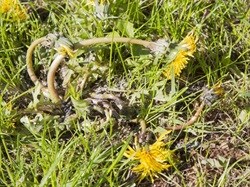The WeedBuster campaign is an initiative led by the Department of Environmental Affairs (DEA), and part of its Working for Water programme, which is the largest public-funded initiative aimed at managing invasive alien plants in the world. The programme seeks to control the problem of invasive alien species, and create work opportunities for previously unemployed people, especially from marginalised groupings.

© scphoto48 - Fotolia.com
The South African campaign is linked to the invasive plant control initiatives by countries such as Australia and New Zealand, as well as to the broader global invasive species programme. The Working for Water programme is a good example of an integration of environmental conservation and poverty eradication objectives. Since its inception in 1995, the programme has created employment opportunities to an average of 26,000 people per year, with 54% of them being women.
On Wednesday, 16 October Deputy Minister of Water and Environmental Affairs, Rejoice Mabudafhasi, led a WeedBuster awareness campaign as part of the 18th anniversary celebration of the Working for Water programme in Grahamstown in the Eastern Cape. Mabudafhasi told residents that the programme has shown an immense value and return on investment for the country through job creation, training and skills development.
Control is crucial
"This morning we visited breeding ponds for biological control agents against water hyacinth at Rhodes University. Biological control is a crucial aspect of the fight against invasive alien species, introducing the natural enemies of invasive species, and this year South Africa celebrates 100 years of bio-control. It has proven to be a fantastic return on investment, and is one example of where the Working for Water programme has empowered and trained hundreds of young South Africans - most of them previously disadvantaged - in this field of science," said Mabudafhasi.
Government has invested enormous capital for the Working for Water programme since its inception. The initial, once-off grant of R25-million from the RDP has grown to being part of a R8.4-billion programme over the medium term expenditure framework for the environmental programmes, of which Working for Water is the biggest programme.
The DEA is planning to create an equivalent of more than 34,000 full time jobs during 2013/14 financial year through its environmental protection and infrastructure, and natural resource management programmes, under which the Working for Water programme falls.




































